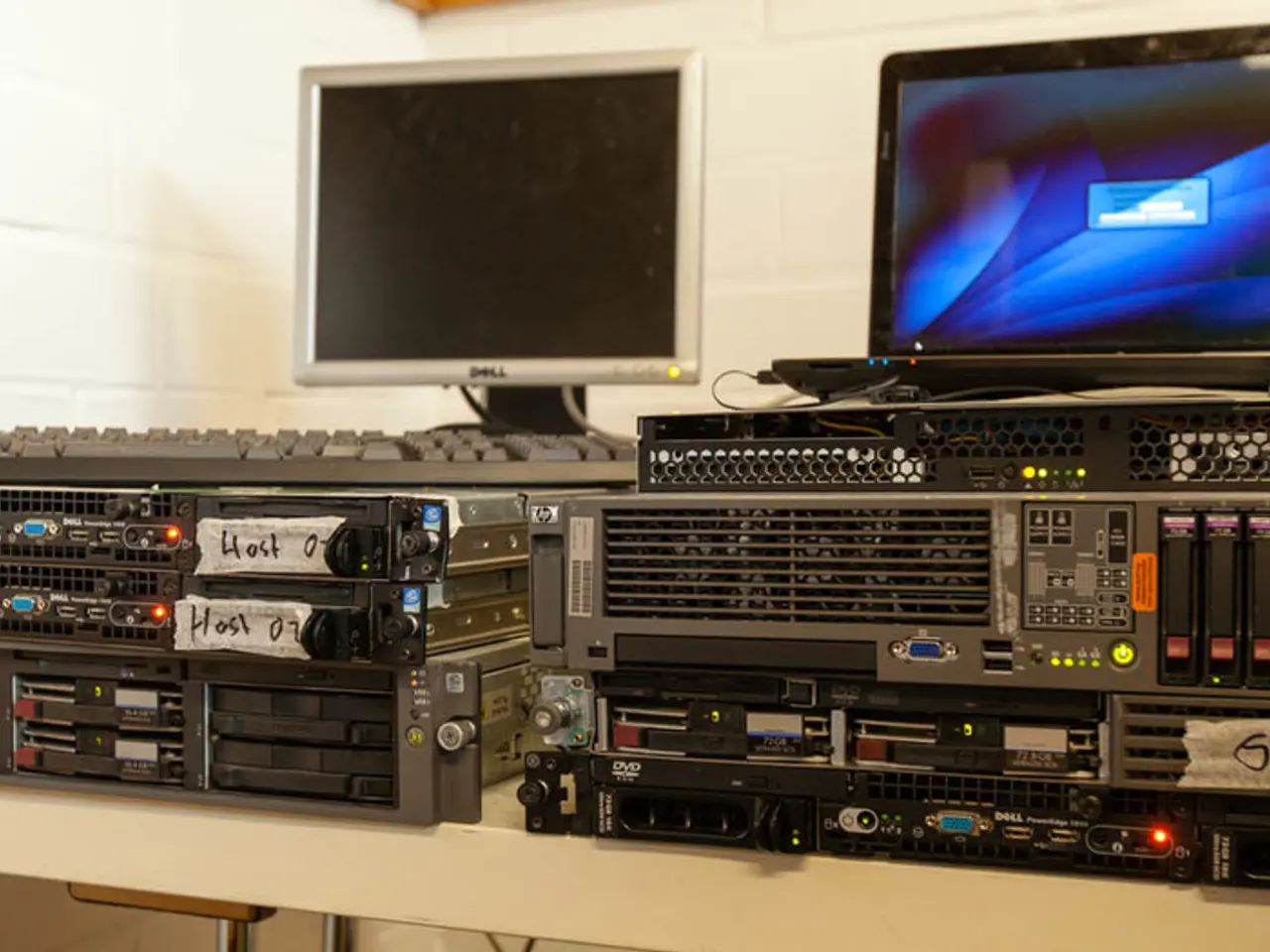United States Scientific Leadership Replacement Initiated by Trump amid Brain Drain Crisis in Europe
The European Union is taking significant steps to bolster its scientific capabilities and ensure independence from external influences, particularly in the face of proposed budget cuts and potential disruptions to U.S. scientific data.
One of the key initiatives is the European Research Area Act, a new piece of legislation designed to support scientific mobility within the EU, guaranteeing the free movement of data and researchers across the bloc. This move is expected to strengthen Europe's position in priority areas such as AI, quantum, space, semiconductors, and digital health, as stated by Ursula von der Leyen.
To further support domestic capabilities, the EU is investing in expanding the European Marine Observation and Data Network (EMODnet), aiming to mirror and possibly replace U.S.-based services. This move is particularly important given that the National Oceanic and Atmospheric Administration (NOAA) provides over half of the world's publicly accessible ocean measurements.
Spain is reinforcing its ATRAE programme with €45 million, targeting established researchers, particularly from the U.S. The programme offers project support of €200,000 to attract top talent. Meanwhile, Denmark's meteorological agency has begun backing up U.S. databases, and Norway has allocated $2 million for secure data storage.
In a bid to attract global research talent, the EU is increasing funding through the European Research Council (ERC) and committing €500 million between 2025 and 2027 to the Choose Europe for Science programme. This programme aims to recruit researchers, particularly from the United States, with seven-year 'super grants' and plans to double existing relocation support.
Aix-Marseille University in France has launched a €15 million project called A Safe Place for Science to offer positions to dismissed or constrained U.S. scientists. Similarly, the Max Planck Society in Germany has established the Max Planck Transatlantic Programme to create joint research centres with U.S. institutions and consider dismissed American researchers for director-level roles.
The shift in scientific leadership from the U.S. to the EU marks a rebalancing and a reassertion of Europe's strategic independence in climate, health, and technological research. This shift is evident in the rising number of applications by American scientists to overseas posts, which has risen by 32% in the first quarter of 2025 compared to the previous year, while foreign interest in U.S. research positions has declined sharply.
However, the loss of data on sea levels, ocean temperatures, and extreme weather presents both a technical and strategic risk for the EU. To mitigate this, European governments, including Denmark, Finland, Germany, the Netherlands, Norway, Spain, and Sweden, are conducting national reviews of their reliance on U.S. data systems.
Meanwhile, a movement known as 'guerrilla archiving' has emerged, with researchers across Europe and the U.S. racing to salvage at-risk datasets. This grassroots initiative underscores the urgency of the situation, as the degradation of weather models over time without access to new observations, as warned by Adrian Lema of the Danish Meteorological Institute, could have significant implications for the EU's climate and weather forecasting capabilities.
Finally, Finland and the Netherlands have been involved in initiatives related to reducing dependence on external technological and data systems, with Finland guaranteeing rural supply through communal contracts and the Netherlands pushing for substantial reductions in environmental impact, implicitly addressing technological dependencies. However, specific national reviews of dependence on US data systems by EU countries are not explicitly detailed in the available information.
These initiatives underscore the EU's commitment to strengthening its scientific capabilities, ensuring independence, and attracting global talent in the face of potential disruptions to U.S. scientific data.
Read also:
- Mobility Sparks Unseen Organ: Surprisingly Active During Physical Activity
- Early Onset Puberty: Its Definition, Triggers, Risks, and Managing Strategies
- "Satanic Worship Owns the Spotlight in America: QAnon Spurring Modern Day Satanic Panic"
- Critics Among Influencers: Championing 'Natural' Birth Control Methods. Essential Information Explained








